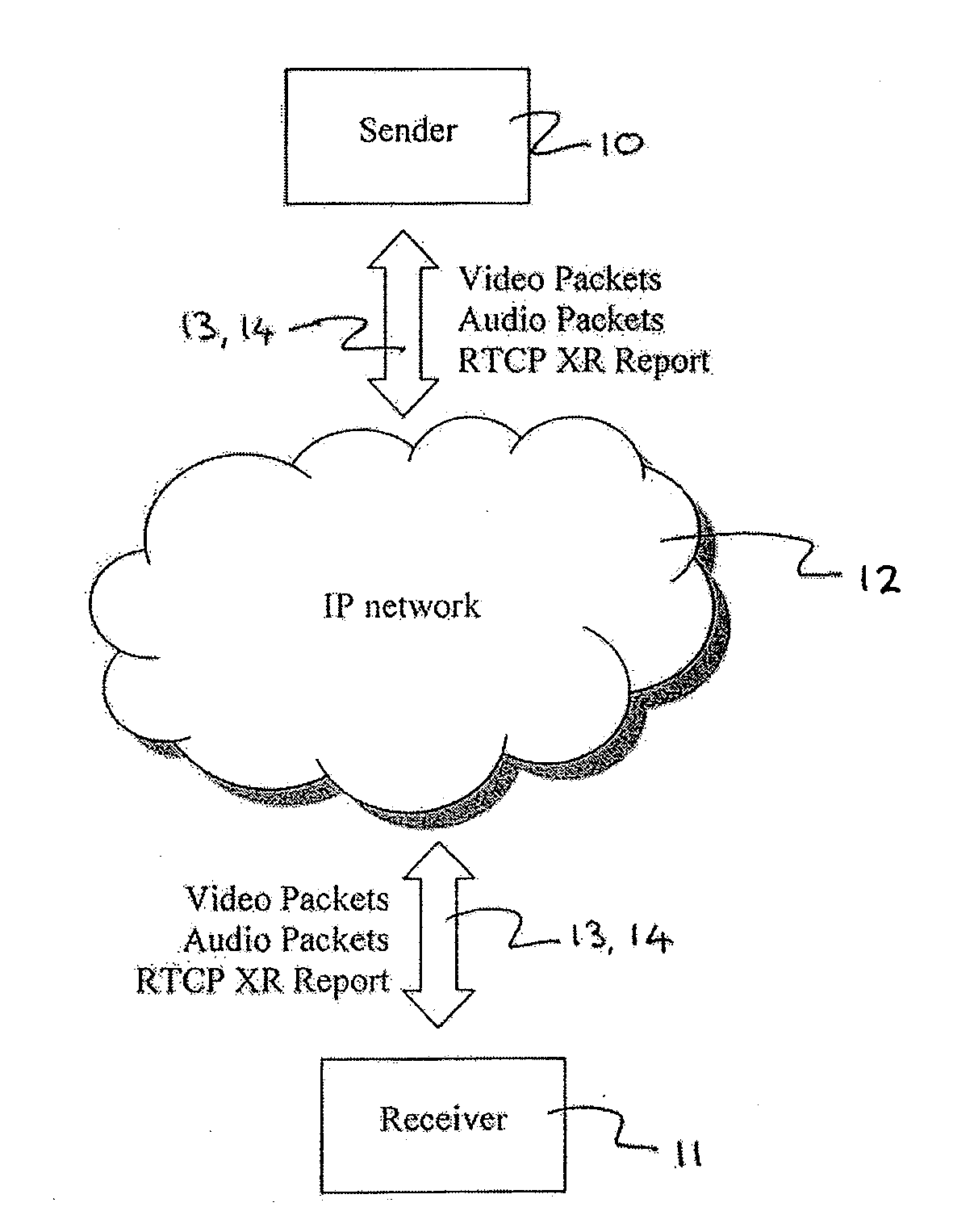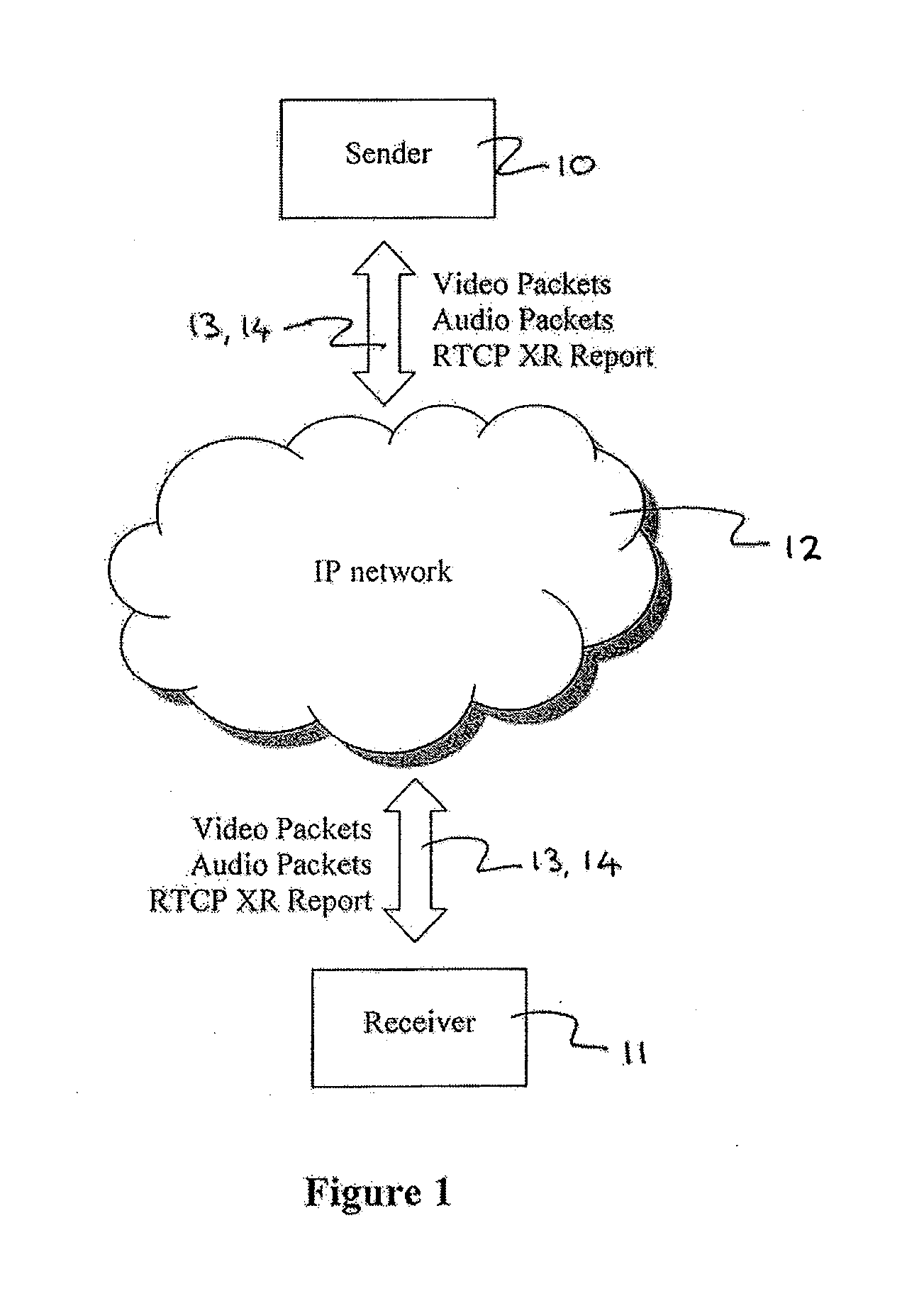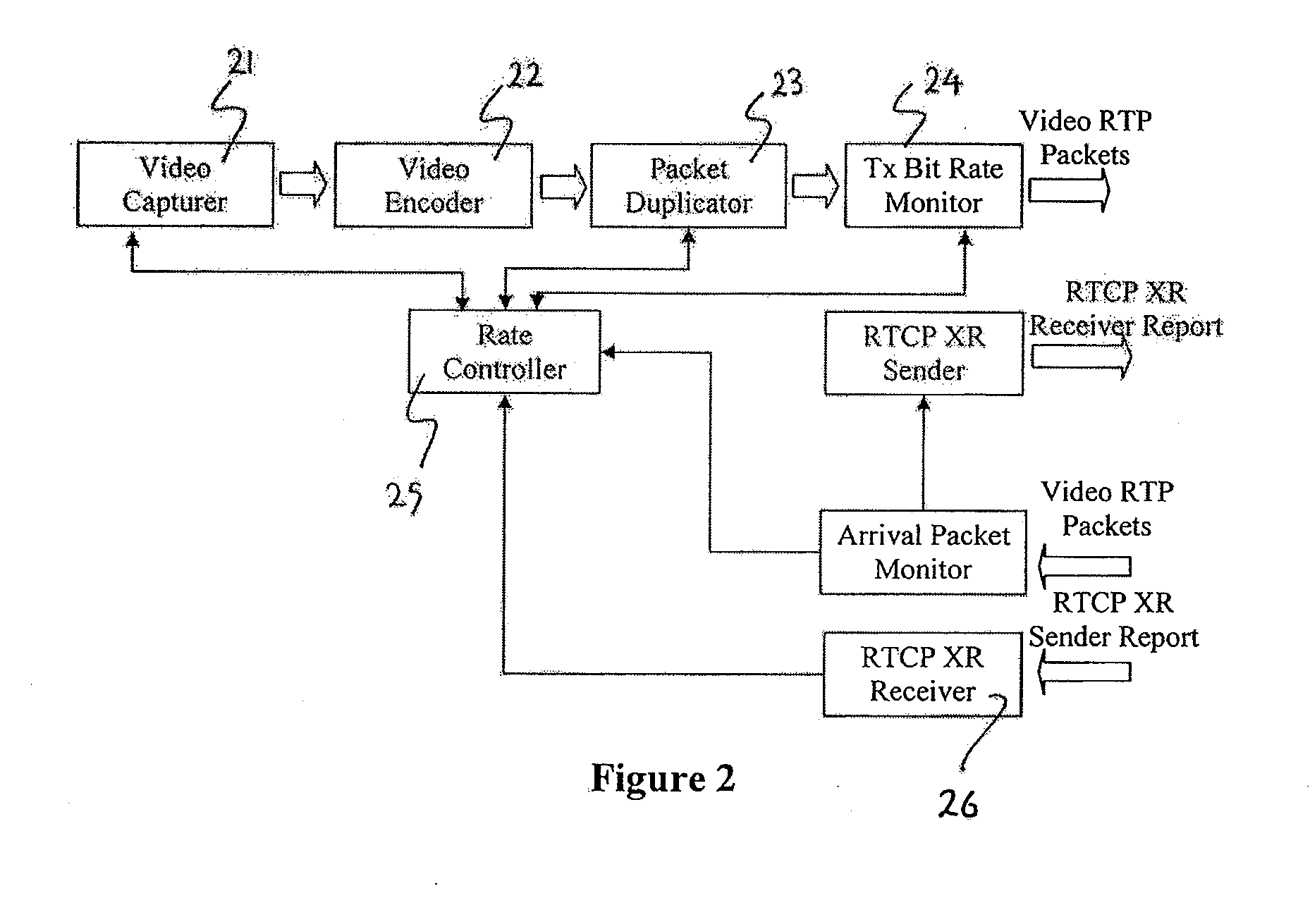Control of bit-rate and packet duplication in a real-time media stream
a real-time media and packet duplication technology, applied in the field of streaming real-time media over ip networks, can solve the problems of increasing the cpu load at both the sending and receiving ends, the loss of video packets, and the inability of the protocol to guarantee delivery, so as to improve the loss rate of video packets, maximize video quality, and improve the effect of video packet loss ra
- Summary
- Abstract
- Description
- Claims
- Application Information
AI Technical Summary
Benefits of technology
Problems solved by technology
Method used
Image
Examples
Embodiment Construction
[0027]Before any embodiments of the invention are explained in detail, it is to be understood that the invention is not limited in its application to the details or arrangements set forth in the following description or illustrated in the drawings. The invention is capable of other embodiments and of being practiced or of being carried out in various ways. Also, it is to be understood that the phraseology and terminology used is for the purpose of description only and should not be regarded as limiting.
[0028]The following discussion on video compression is given to help understanding the criteria used in the preferred example of the invention and is not intended to limit the scope of use or functionality of the invention. The skilled addressee will understand that the current invention can be used in media streaming applications with or without compression, or using various different compression methods.
[0029]In the preferred embodiment of the invention video is streamed in real-tim...
PUM
 Login to View More
Login to View More Abstract
Description
Claims
Application Information
 Login to View More
Login to View More - R&D
- Intellectual Property
- Life Sciences
- Materials
- Tech Scout
- Unparalleled Data Quality
- Higher Quality Content
- 60% Fewer Hallucinations
Browse by: Latest US Patents, China's latest patents, Technical Efficacy Thesaurus, Application Domain, Technology Topic, Popular Technical Reports.
© 2025 PatSnap. All rights reserved.Legal|Privacy policy|Modern Slavery Act Transparency Statement|Sitemap|About US| Contact US: help@patsnap.com



